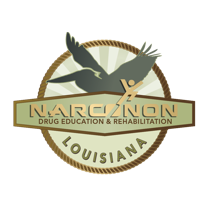Alcoholism and Over Drinking
WHAT CAUSES OVER DRINKING?
A REVIEW OF CASES
 Theories abound as to what causes a drinker to morph into an alcohol abuser or alcoholic. They include the hypothesis that alcoholism is hereditary and is in the genes, that it caused by an allergy to alcohol or learned through observation of family drinking, to name a few. There are proponents of the disease theory and others espouse the behavior model. If one were to do a complete study in search for a definite conclusion, it would stand to reason that there would be a common thread throughout the case histories, no matter the hereditary or psychosocial predisposing factors.
Theories abound as to what causes a drinker to morph into an alcohol abuser or alcoholic. They include the hypothesis that alcoholism is hereditary and is in the genes, that it caused by an allergy to alcohol or learned through observation of family drinking, to name a few. There are proponents of the disease theory and others espouse the behavior model. If one were to do a complete study in search for a definite conclusion, it would stand to reason that there would be a common thread throughout the case histories, no matter the hereditary or psychosocial predisposing factors.
While not an official study, it is interesting to review a few cases of people who have received treatment for alcohol abuse. These are typical cases of many that have arrived to Narconon over the last ten years. They were of different ages and came from varying backgrounds. (Their names have obviously been changed to provide confidentiality.)
JOE’S HISTORY OF ALCOHOL ABUSE
JOE – Joe arrived to Narconon for his alcohol addiction after drinking for three decades. He first learned of alcohol as a small child. He frequently witnessed his father (who was a successful business owner) drink throughout the evenings. Many evenings ended in a crescendo of drunkenness which was over shadowed by the hysteria of his mother who would often scream and throw things at her husband. Often the histrionics continued late into the night, keeping the five children in the house awake.
When Joe was in high school he started drinking a few times a week. It wasn’t problematic in terms of his academic achievement. He went to college, created a career for himself and continued drinking. In his history, Joe reported that his drinking got heavier as his life problems increased. He was taking care of his ill parents and was trying to raise a family. In his 30s he used drinking to drown out what he described as family noise. He felt he had no other way to deal with the negativity around him. By the time he was in his mid forties he was a full blown alcoholic. He had lost his family and career. He doesn’t believe that witnessing the early drinking in his life contributed to his alcoholism as much as later life incidents. He became alcohol-free through addressing these later life incidents while he was in treatment. He feels that the learning of basic life tools gave him other ways to deal with his problems than alcohol. One other sibling in the family over drinks, but is a functional drinker.
SHE DRANK BECAUSE SHE WAS BORED
LISA – Lisa arrived to Narconon after 10 years of destructively hard core drinking. By the time she arrived to Narconon she had lost her husband and child through divorce and had spent time in jail for multiple DUIs. Despite these losses in her life, she was unable to stop on her own and her family knew that she would soon be dead if she did not get help. In her history Lisa reported that she did not witness drinking when she was growing up. She was adopted and therefore had no idea if her biological mother or father were drinkers. However, her adoptive parents provided the perfect family life and every opportunity to excel. The client started drinking with her friends in high school. At the time, the group would sneak alcohol from their families. The client states that she didn’t drink more than her friends did, but didn’t outgrow it as they did. She continued to drink, but considered herself “functional”. She got married and had a child and the drinking was not interfering with her progress in life. However, there came a time when Lisa reports that she became extremely bored with her life. It was a tremendous feeling of boredom and lack of purpose and the only way she found she could dull it was to drink alcohol. For some reason it did not occur to her that she could change things about her life. She felt stuck and the only way out was through drinking. When she arrived to Narconon she had already been through several treatment programs and had been released from the hospital to Narconon. Despite having arrived to a hospital with an alcohol level so high that her heart had stopped beating and she had to be resuscitated, Lisa was in denial during her initial history. She still had the idea that she should be able to keep drinking – she just had to learn to avoid the consequences. It wasn’t until a few months in the program that she realized that she could no longer drink. She than began to face putting her life together without alcohol. This took quite a bit of work, because as it turned out, Lisa had not really confronted anything about her life in many years. Her life had become drinking and everything else was a bit of a bother to her. As her responsibility rose, so did her willingness to engage in the hard work of maintaining sobriety. Today, several years later, Lisa has remarried, has another child and a new career. She still has difficulty sometimes, but rather than think if her life isn’t perfect she needs to fix it with a drink, she uses the tools she learned in treatment. At the end of the day she attributes her continuing sobriety to her ability to maintain a sense of ethics.
A YOUNG DRINKER
DEBBIE Debbie’s father was an alcoholic but she never met him. He died from complications of alcohol abuse and Debbie was raised by her mother. Debbie was a good kid with an abundance of energy – so much energy that instead of channeling it, her mother and doctor decided that she needed to be put on Ritalin. Debbie reported that the Ritalin definitely changed her state of consciousness and considers that she spent her early childhood drugged. She simply changed the drug when she was a teenager and started drinking. Debbie came out of the gate drinking hard. She reports in her history that there were many times that she drank to the point of black-out. She wouldn’t remember what happened the next day. She added cocaine to her substance cocktail, but her drug of choice remained alcohol. Her drinking was not stopped through treatment, but by law enforcement. During one of her black-outs Debbie was involved in a minor robbery and was locked up. She arrived to treatment from jail.
Debbie was still quite young and had done little reflection about her short life before she arrived. In fact, she feels she had been high on something for most of her life and had little time to really know who she was. Treatment involved not only learning life tools, but creating life goals for herself. As she learned more about herself, she created who she wanted to be. Were it not for treatment, she feels that she would have continued to drink through an aimless life. Like Lisa, drinking had become her life. And life Lisa and Joe, she has come to learn that she must continuously use the life skills she learned in treatment to maintain her sobriety.
SUMMARY
While this is a cursory look at just a few individuals, it is clear that at least in these cases, no matter the cause of the alcohol abuse, the resolution was the same. Each person had to confront their drinking and their life before they could do something about their circumstances. Through discipline of using tools, they learned to live a sober life. They are living examples that it possible to achieve sobriety if one develops and maintains a sense of responsibility. Given life tools, they can responsibility use them to maintain their sobriety. In the end, no matter the “cause” each had to be guided towards a solution that would work for them, if they worked the solution.
In the case of these individuals, the individual cause of drinking was not the same. Yet each person had to face their own demons behind the drinking and resolve them by learning the same tools.
